-
News & Events

On October 1, 1949, the People's Republic of China was founded. The newly born People's Republic was faced with arduous task of rapidly restoring and developing the national economy and was in urgent need of a large number of talents.
On May 13, 1950, in order to deepen friendship and reserve talents for diplomatic work, the sub-committee of Culture and Education Committee of the Administration Council reported in the request sent to Mao Zedong, Liu Shaoqi, Zhu De, Zhou Enlai and Chen Yun about the plan of sending students to the Soviet Union and the Students Exchange Program proposed by the Czechoslovak and Polish governments and the corresponding considerations.
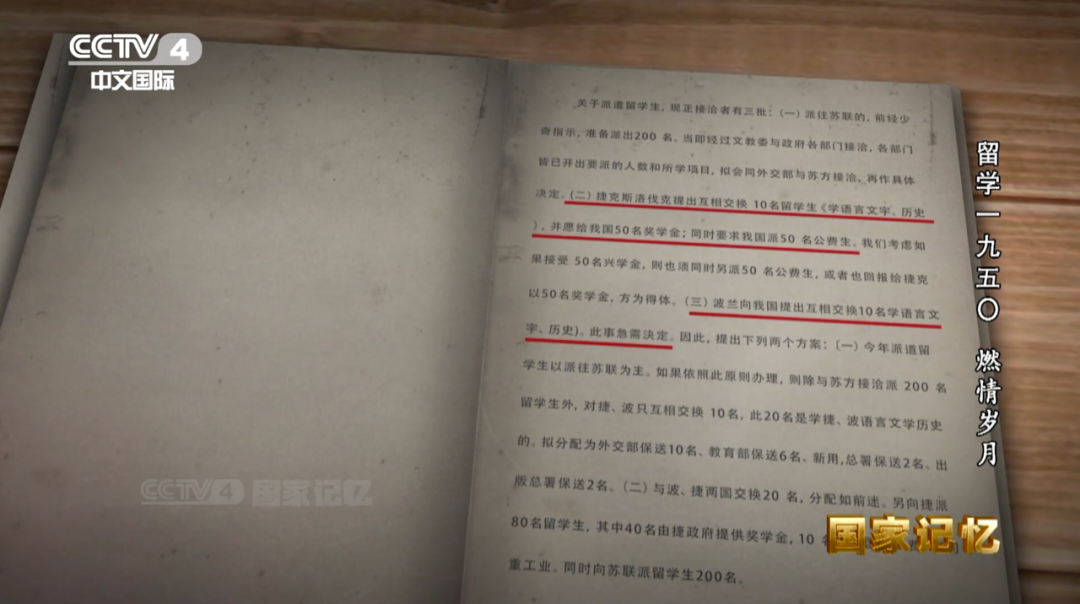
Later, in addition to agreeing to exchange 10 students, the Chinese government also took the initiative to propose to Romania, Hungary and Bulgaria to exchange five students each. The proposal received positive responses from the governments and an agreement was quickly reached.
At that time, the goal of training these exchange students to Eastern European countries was to learn their languages, culture and history of the fraternal countries in order to meet the urgent demands of diplomacy.
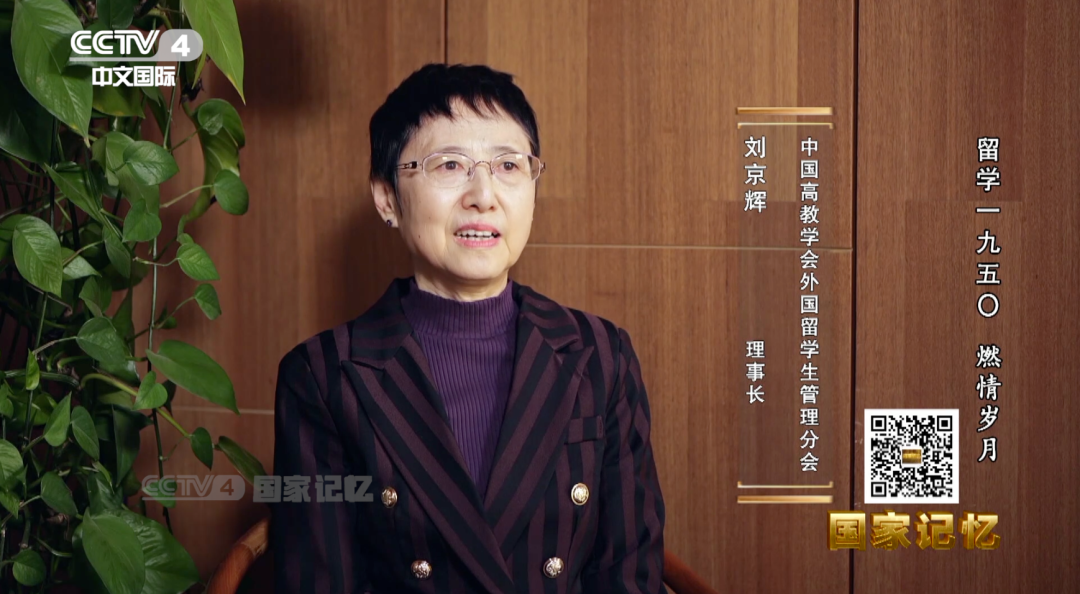
Liu Jinghui
President of Foreign Students Management Branch of China Higher Education Association
A country needs diplomats to establish diplomatic relations in the first place.
It is easier to work if he knows the language and understands the culture of the counterpart, so most of the first ones sent are students who acquire foreign languages.
However, when the Cultural and Education Commission submitted the selection list to the central government,it was not approved.
It turned out that all 25 people on the list were male. Deng Yingchao, the vice president of the All-China Women's Federation, said that the birth of the new China had improved the social status of Chinese women, who had also made great contributions to the independence and liberation of China. They were also the main force in the future construction of the People's Republic. Therefore, the first batch of exchange students sent by China should include female students.
Soon, the Cultural and Education Commission made an adjustment of the list, changing the original plan of sending five male students to four males and one female to each host country.
On September 6, 1950, the first batch of students sent by the Republic of China boarded the Moscow-bound train. They parted in Moscow and went to different countries.
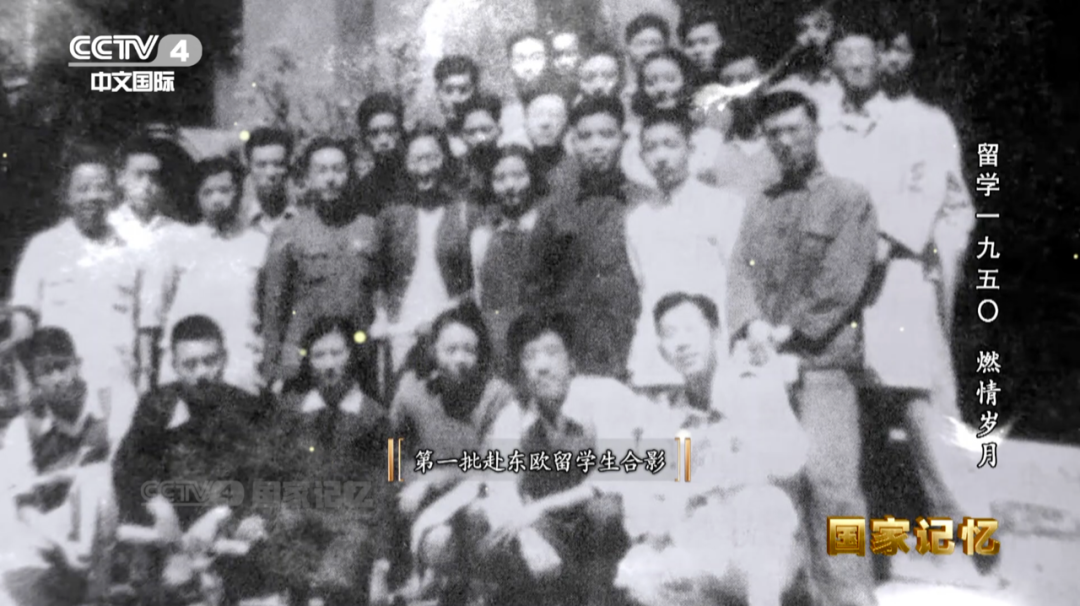
Chinese students were warmly welcomed in the five Eastern European countries. The governments of the five countries not only waived the accommodation fees for Chinese students, but also provided scholarships and arranged good accommodations, with two people in a room, one Chinese student and one international student.
The foreign students who live with them are carefully selected to help their Chinese counterparts learn the language and adapt to local life. Meanwhile, Chinese students are trying to overcome the unaccustomed food, climate and customs, from drinking warm water to gradually adapting to drinking unboiled water, from eating stir-fried dishes to eating western cuisine, cold food and cheese ...... After continuous adjustment, their study life abroad gradually enter blissful circumstances.

In 1951, one year after sending students to Eastern European countries, the long-prepared plan of studying in the Soviet Union finally began. Unlike those sent to Eastern Europe, the first batch of students selected to stay in the Soviet Union included not only university students, but also accomplished PLA generals, high-spirited high school students, aspiring young officers and experienced technicians. Among them, the oldest was over 40 years old, the youngest was not yet 20.In late August 1951, the first batch of 375 Soviet students left Beijing for Moscow, the holy land of the world proletarian revolution in their hearts, with the earnest wish of the Party and the people. Thus China began the first climax of studying abroad!

All Chinese students exerted their extraordinary efforts in their study for later serving their motherland China as soon as possible. In the classroom, Chinese students always sat in the first row. Diligence and assiduity became the hallmark of Chinese students at that time.
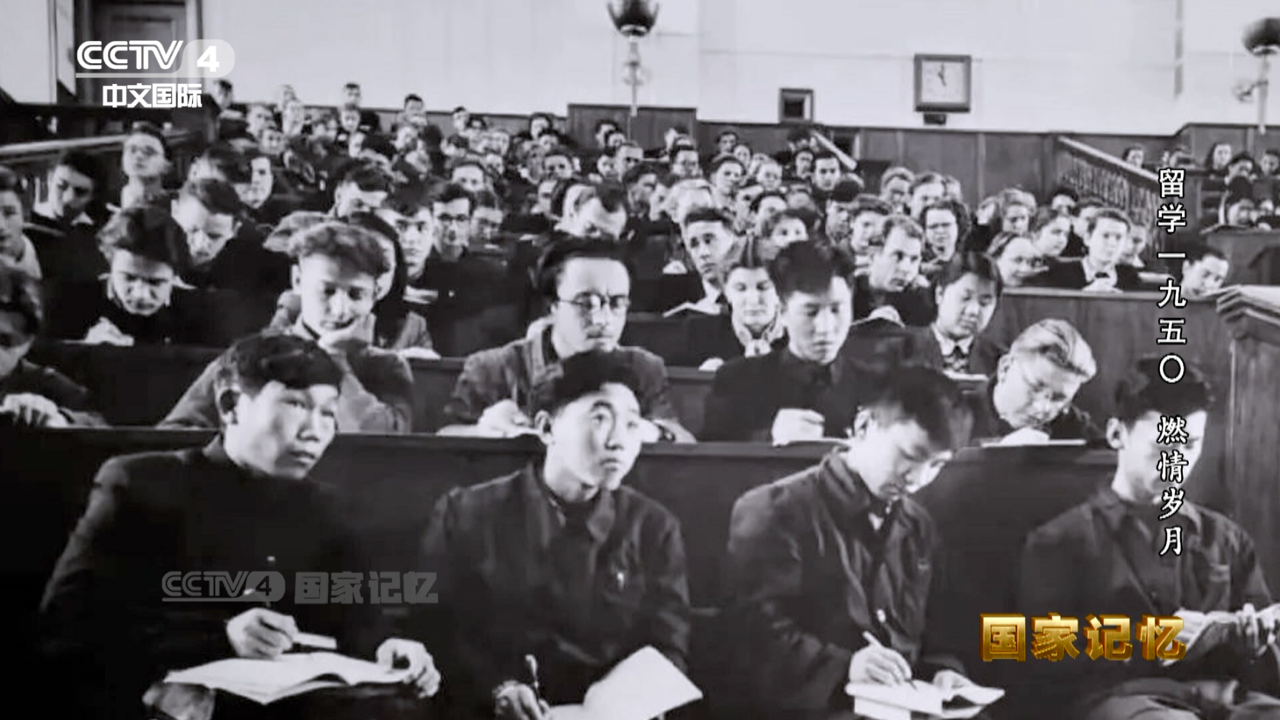
While the students were working hard in other countries, their motherland was always concerned about them. Every time when Premier Zhou Enlai made a visit to these countries, he would meet with the local students to see their study and living conditions if he had spare time.
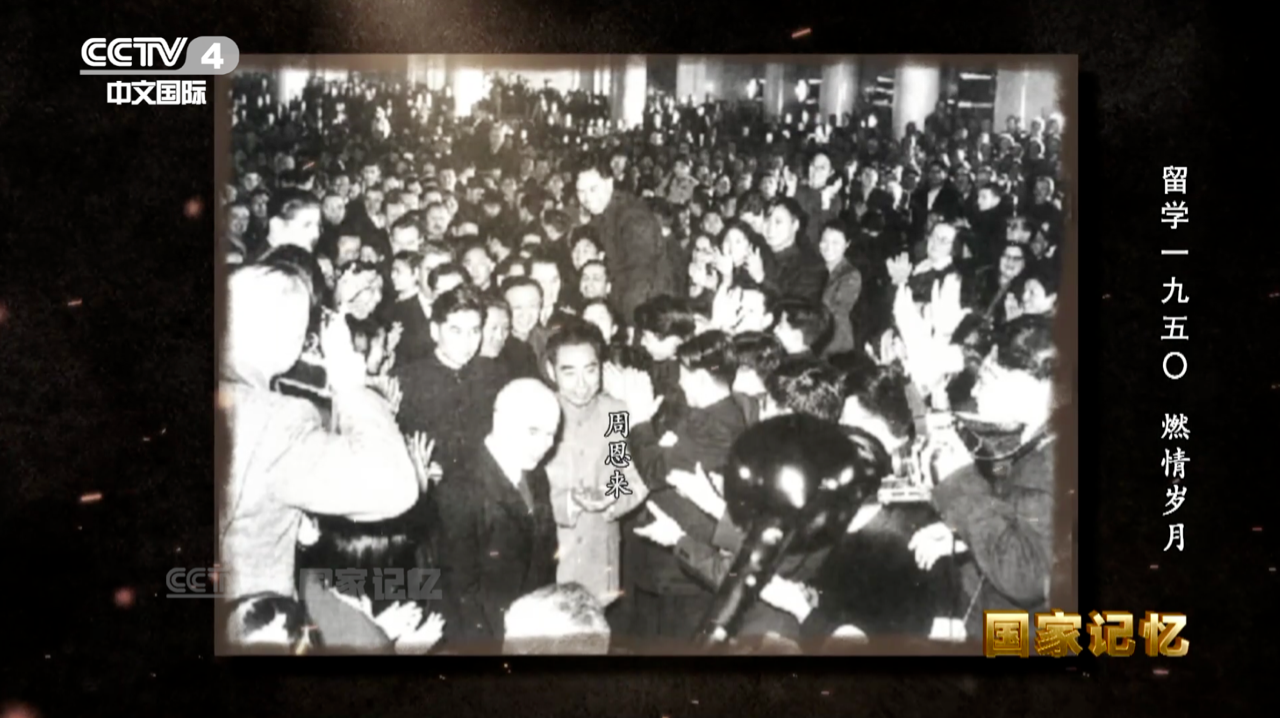
On November 2, 1957, Chairman Mao Zedong led a Chinese delegation to leave Beijing by exclusive planes to attend the ceremony of the 40th anniversary of the October Revolution in Moscow.

On November 17, almost all the Chinese students in Moscow rushed to the auditorium of Moscow University. When Chairman Mao, Deng Xiaoping, Peng Dehuai and other leaders of the Central Committee of the Communist Party of China came out from behind the auditorium's podium at about 6:00 p.m., the whole place was abuzz.

Facing the energetic overseas Chinese students, Chairman Mao made a passionate speech.
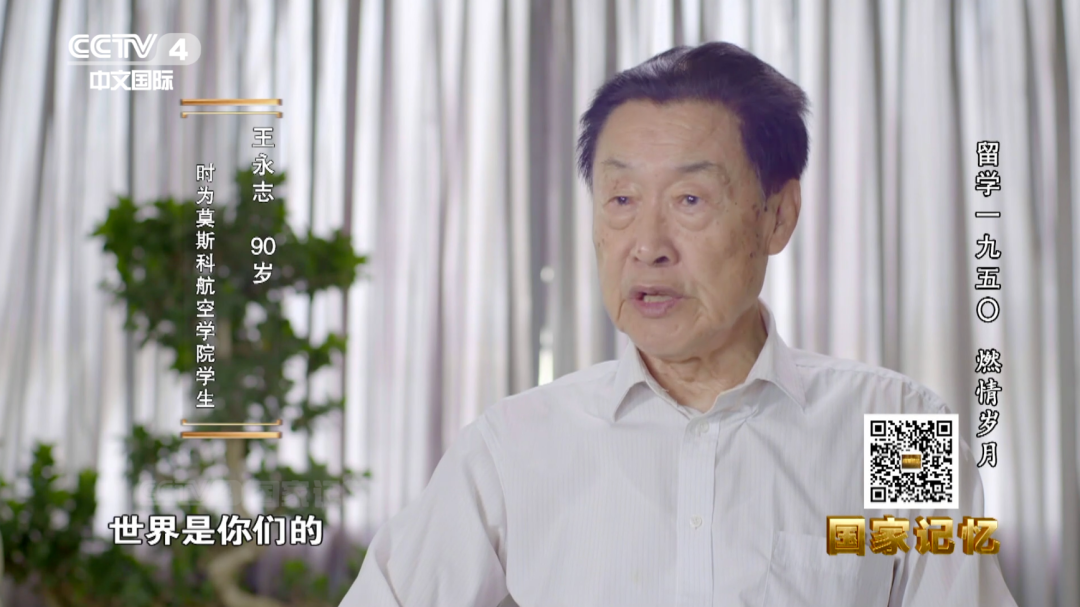
Wang Yongzhi 90 years old
He was a student at the Moscow Aviation Academy
The first sentence of his speech was that the world is yours and ours, but in the end it belongs to you. You young people are flourishing, like the sun rising in the early morning. Our hopes are all on you.
All the students who were there to listen to Chairman Mao's speech vowed to live up to their responsibilities and serve the motherland!
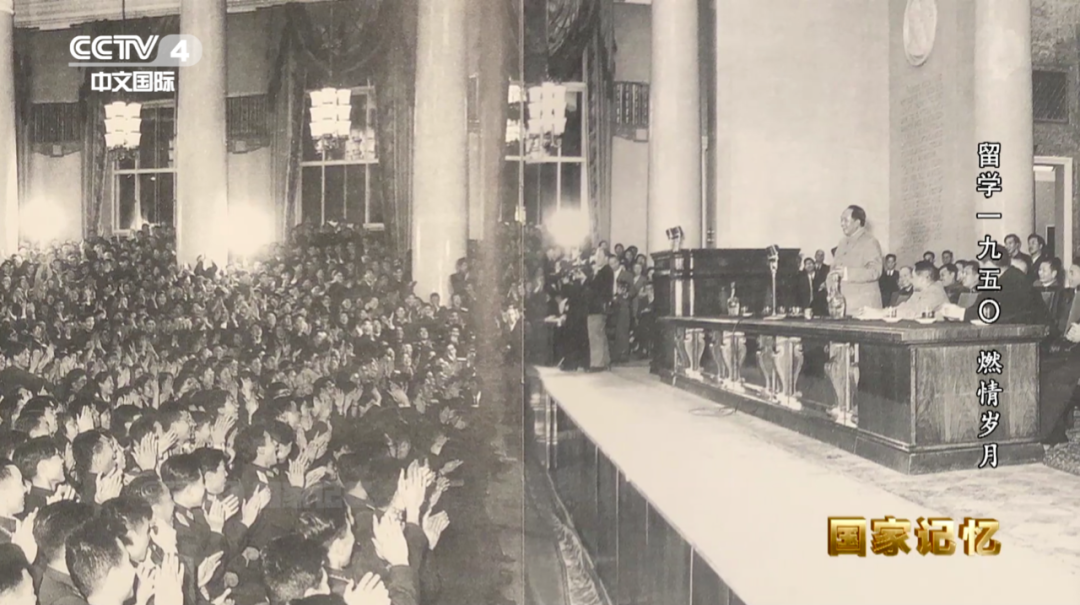
By 2022, there were 223 academicians and members of the Chinese Academy of Social Sciences among the first generation of Chinese students studying abroad.
Among them, 103 were elected as members of Chinese Academy of Sciences, 103 were elected as members of Chinese Academy of Engineering, 5 were elected as members of Chinese Academy of Social Sciences and 13 were elected as honorary members of Chinese Academy of Social Sciences. They give everything they have for the sake of building the motherland without any complaints or regrets!
